2023 has been a year of community resilience for the UW Department of Environmental & Occupational Health Sciences (DEOHS). Together with many partners, our students, faculty and staff spearheaded projects to help Pacific Northwest communities respond and adapt to extreme heat, flooding, wildfire smoke and other impacts of climate change. We also helped launch two new research centers, the Center for Environmental Health Equity and the Center for Disaster Resilient Communities.
Meanwhile, we furthered our mission to improve workplace health and safety with research on risks and exposures for firefighters and transit operators. Finally, we updated the name of our undergraduate major to Environmental Public Health to reflect our academic focus at the intersection of human health and the environment and our role as an applied science program within the top-ranked UW School of Public Health.
Explore our top stories of 2023, and we look forward to reconnecting with you in the new year!
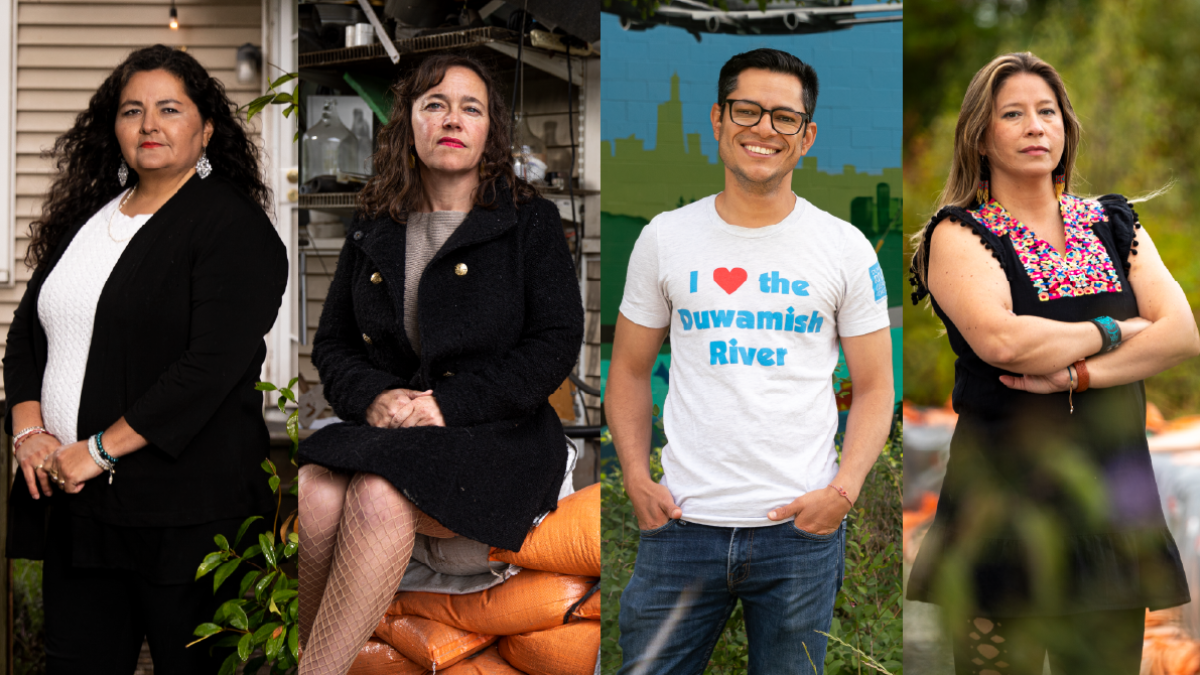
10. Building climate resilience on Seattle’s waterfront
In fall 2022, our team of researchers from the Duwamish Valley Youth Corps, the Duwamish River Community Coalition, the City of Seattle and DEOHS went door to door in the Seattle neighborhoods of South Park and Georgetown to survey households about their perspectives on issues relating to climate resilience. This new storymap highlights their findings through the voices and portraits of community members and project participants.

9. Lowering lead exposure from traditional eyeliners
DEOHS MS student Aesha Mokashi is testing alternatives to traditional eyeliners used in Afghan communities, which often contain high levels of lead, in collaboration with King County and Afghan Health Initiative. “I like that there's a story that you can tell with public health,” Mokashi said. “It’s often a sad story, but then, hopefully, there’s a happy ending where people have figured out: There's an issue here, and we know where it's coming from so now we can stop it.”
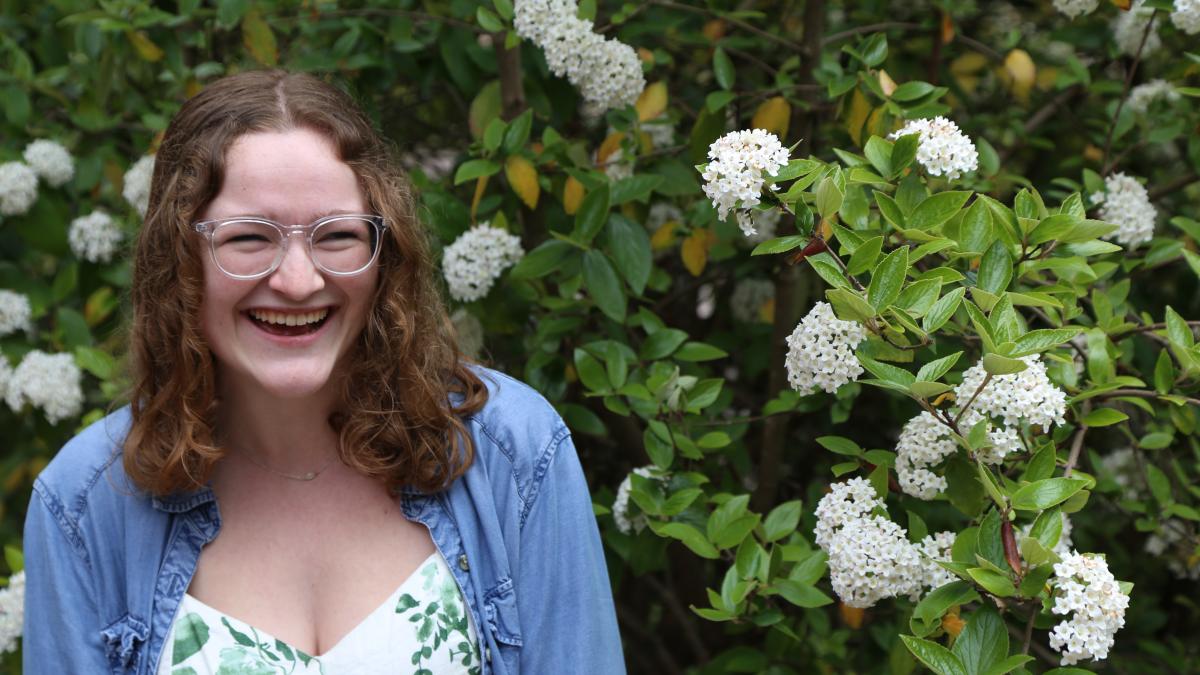
8. Curiosity, service and a drive to make a difference
Bridget Ury, DEOHS’s 2023 outstanding undergraduate student, double majored in Environmental Health and Political Science and completed an environmental health and safety internship with an aerospace company in Everett. “Bridget stands out as one of the most thoughtful, resourceful, capable and talented undergraduate students I have encountered at UW,” said DEOHS Assistant Professor Marissa Baker, who served as Ury’s mentor.
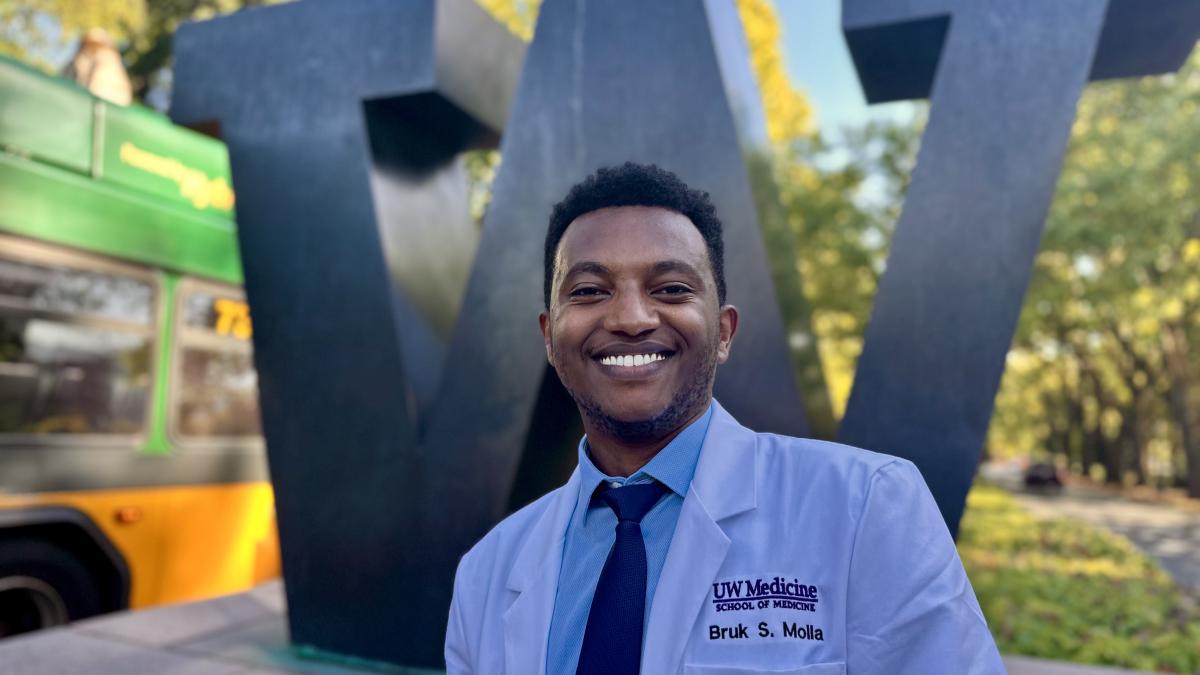
7. The perfect premed major
DEOHS BS alum Bruk Molla, now a first-year medical student at the UW, said his research, classwork and internship experiences in the department all set him up well for medical school and launched him on a path toward becoming an academic physician. “It prepared me for medical school and gave me a bigger lens going forward,” Molla said.

6. Fishing for an autism cure
New Assistant Professor Yijie Geng is on the hunt for chemicals in the environment that increase people’s risk for autism. With “Fishbook,” his new high-throughput screening method in zebrafish, he has identified a group of chemicals that disrupts the creatures’ usual curious behavior about their fellow fish in a manner similar to autism.
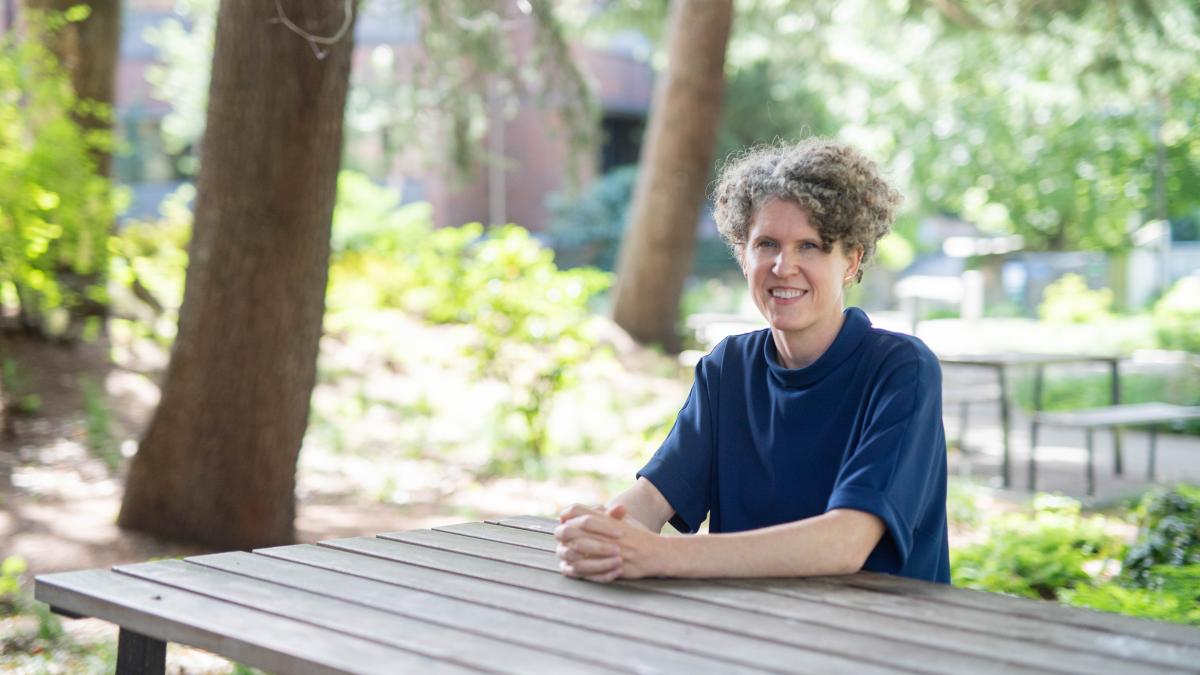
5. Seeking sustainability and environmental justice
Power outages. Wildfires. Antibiotic use in livestock. Heat waves. In this year alone, new Assistant Professor Joan Casey has published new research on the health impacts of all these issues and more. The environmental epidemiologist analyzes large health-related data sets to answer multilayered questions about how environmental changes and social inequities impact people’s health.
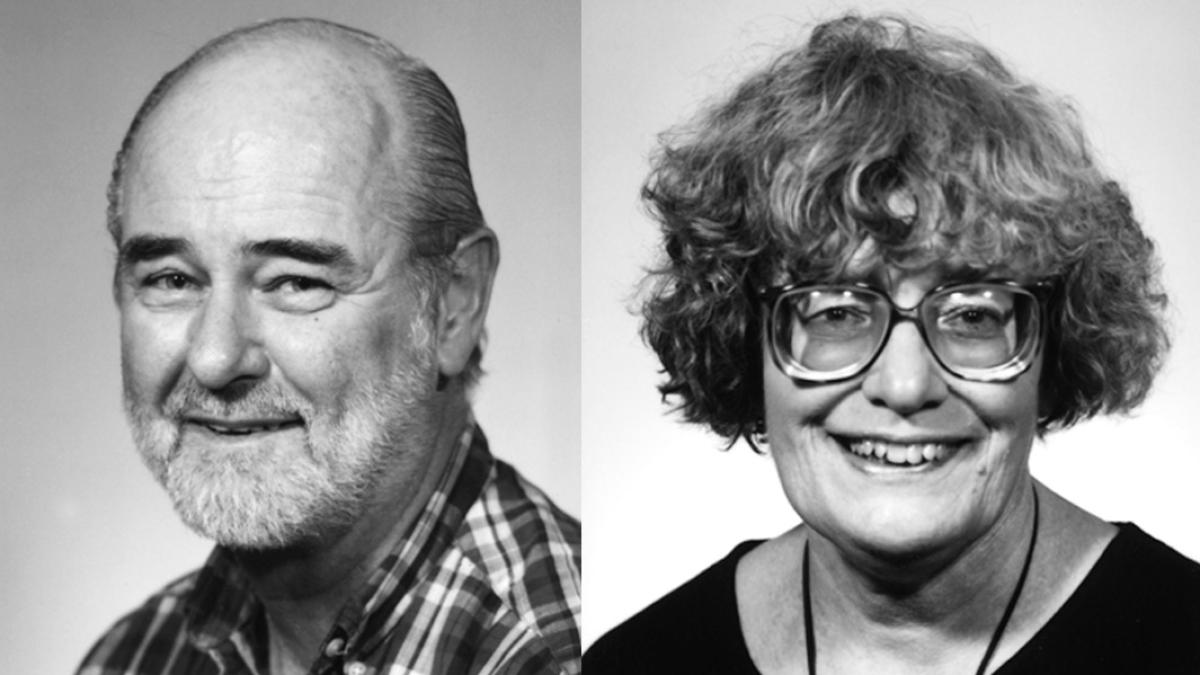
4. In Memoriam: DEOHS Professors Jane Koenig and Daniel Luchtel
The DEOHS community shared treasured memories of two emeritus faculty members in environmental toxicology who passed away in 2022: Jane Koenig and Daniel Luchtel. During their decades-long careers at UW, both Koenig and Luchtel made major contributions to the field of environmental toxicology, and also shared their talents through teaching, mentorship and service.
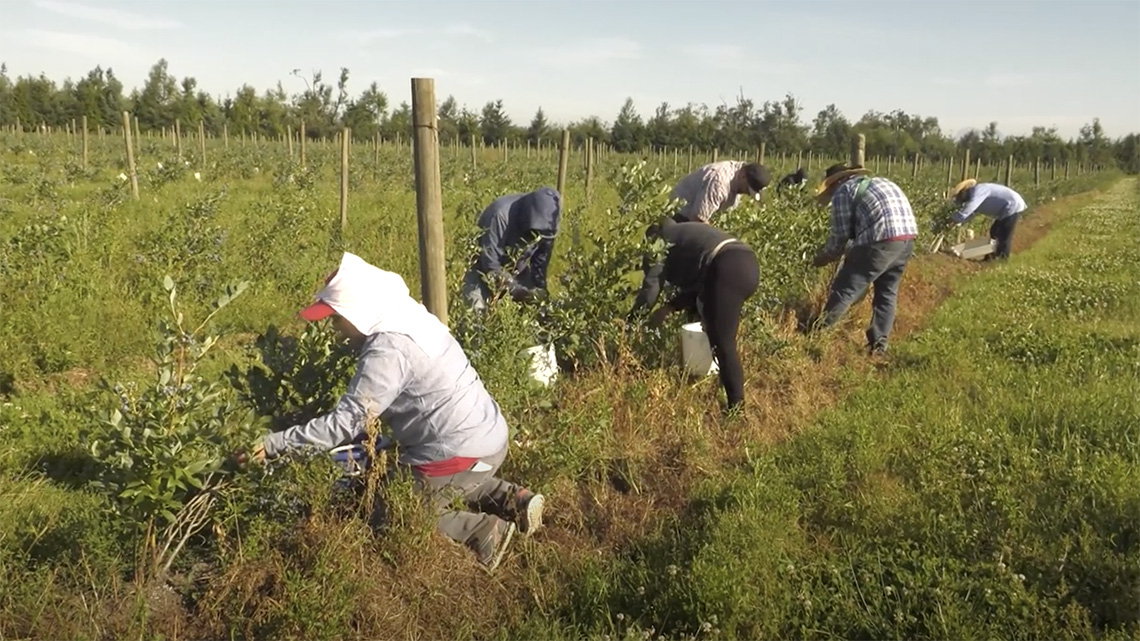
3. The heat is on: How to protect health in extreme heat
To get ready for a hotter future, the Pacific Northwest urgently needs to prepare now. Our special feature spotlights nine DEOHS researchers who are leading cutting-edge research, creating new tools and building partnerships to help our region prepare for future events like the heat dome of 2021.

2. Transit drivers and secondhand drug smoke
Fentanyl and methamphetamine smoke linger on public transit vehicles, according to a recent assessment led by DEOHS researchers. Nearly all of the positive samples contained small amounts that are unlikely to cause acute medical conditions. It remains unclear if consistent, long-term exposure—such as that potentially faced by operators working a 40-hour week—poses a risk to worker health.
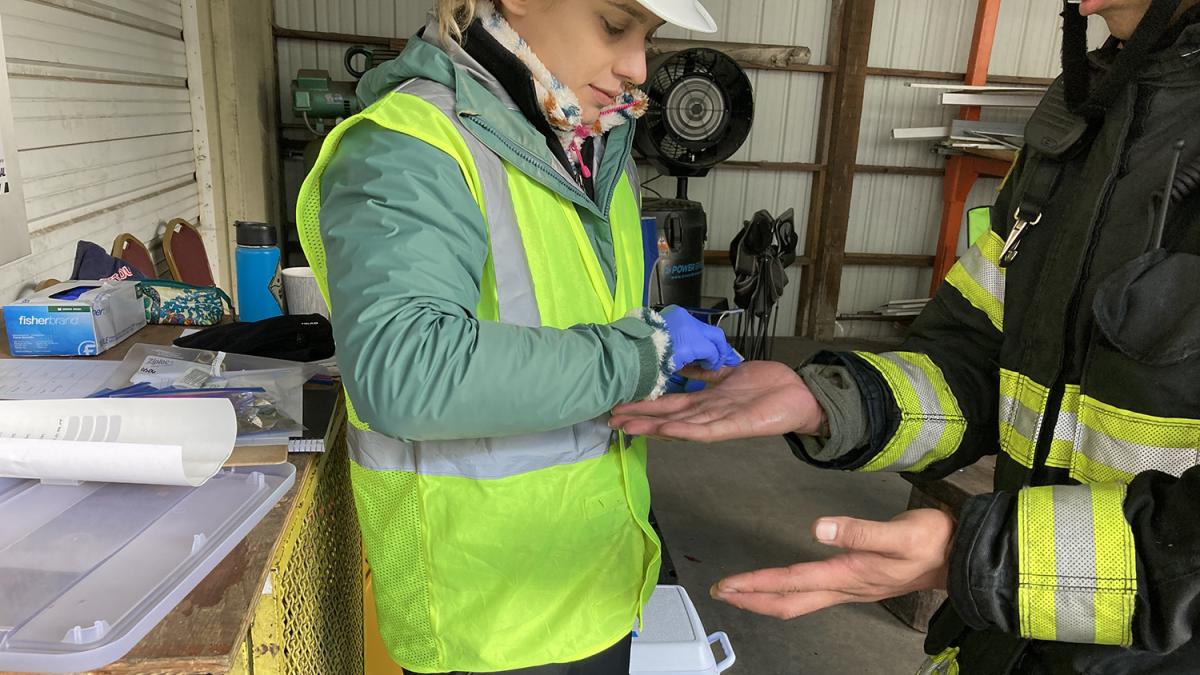
1. Preventing long-term health risks for firefighters
Firefighters risk their lives responding to emergencies, but they also jeopardize their long-term health through exposure to toxic chemicals and other occupational hazards. DEOHS faculty members Elena Austin and Martin Cohen led a triad of studies focused on cancer risks, dermal exposure to carcinogens, and radiofrequency exposure for these first responders “through discussions with firefighting partners, and trying to understand what their needs are,” Austin said.




